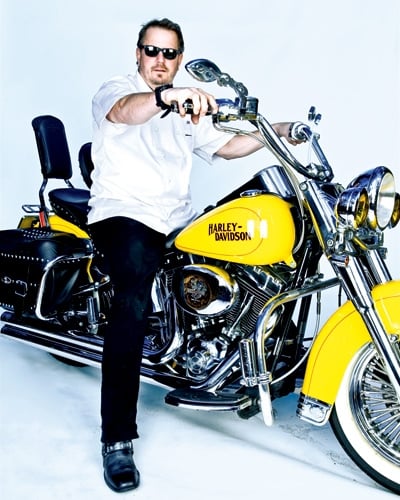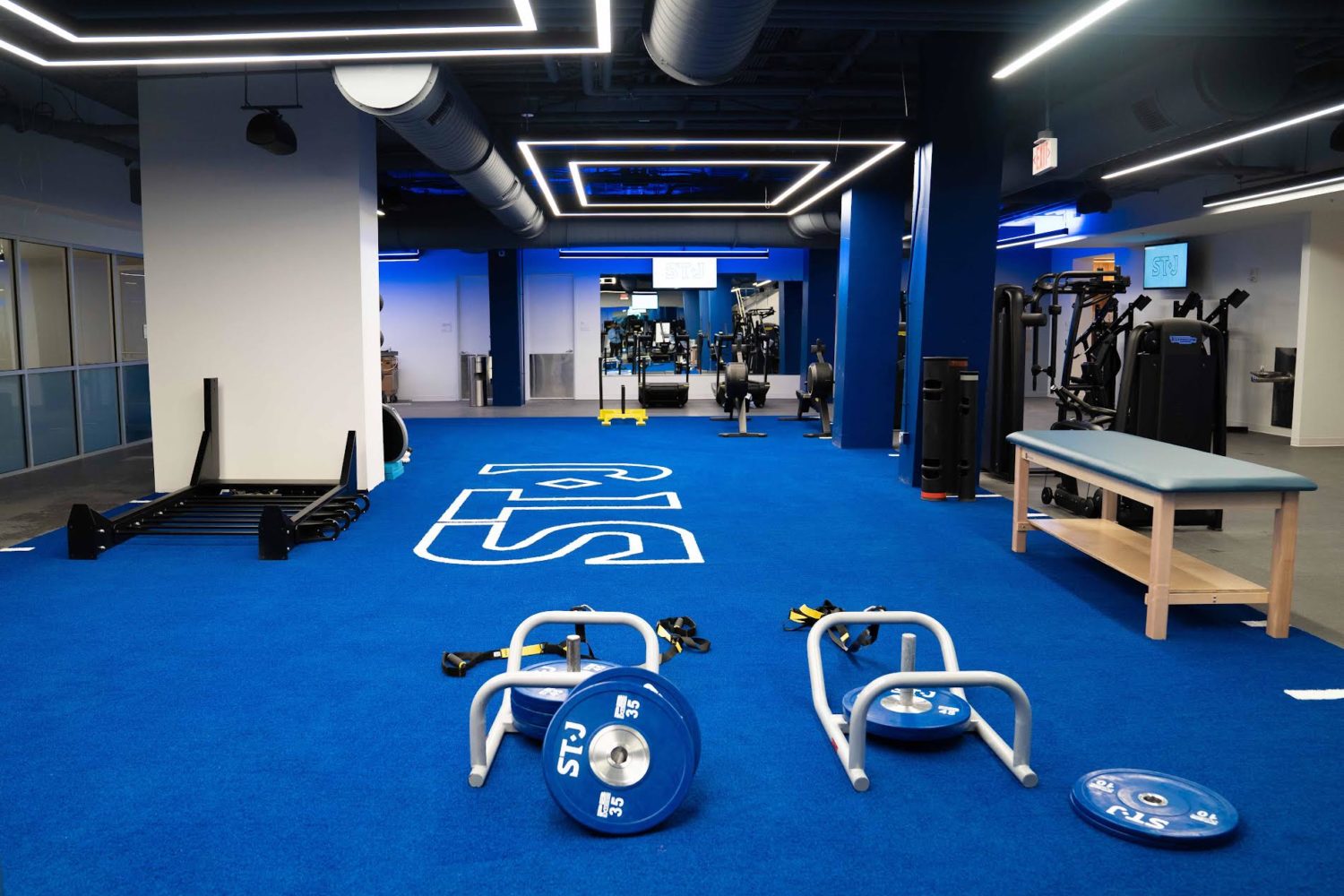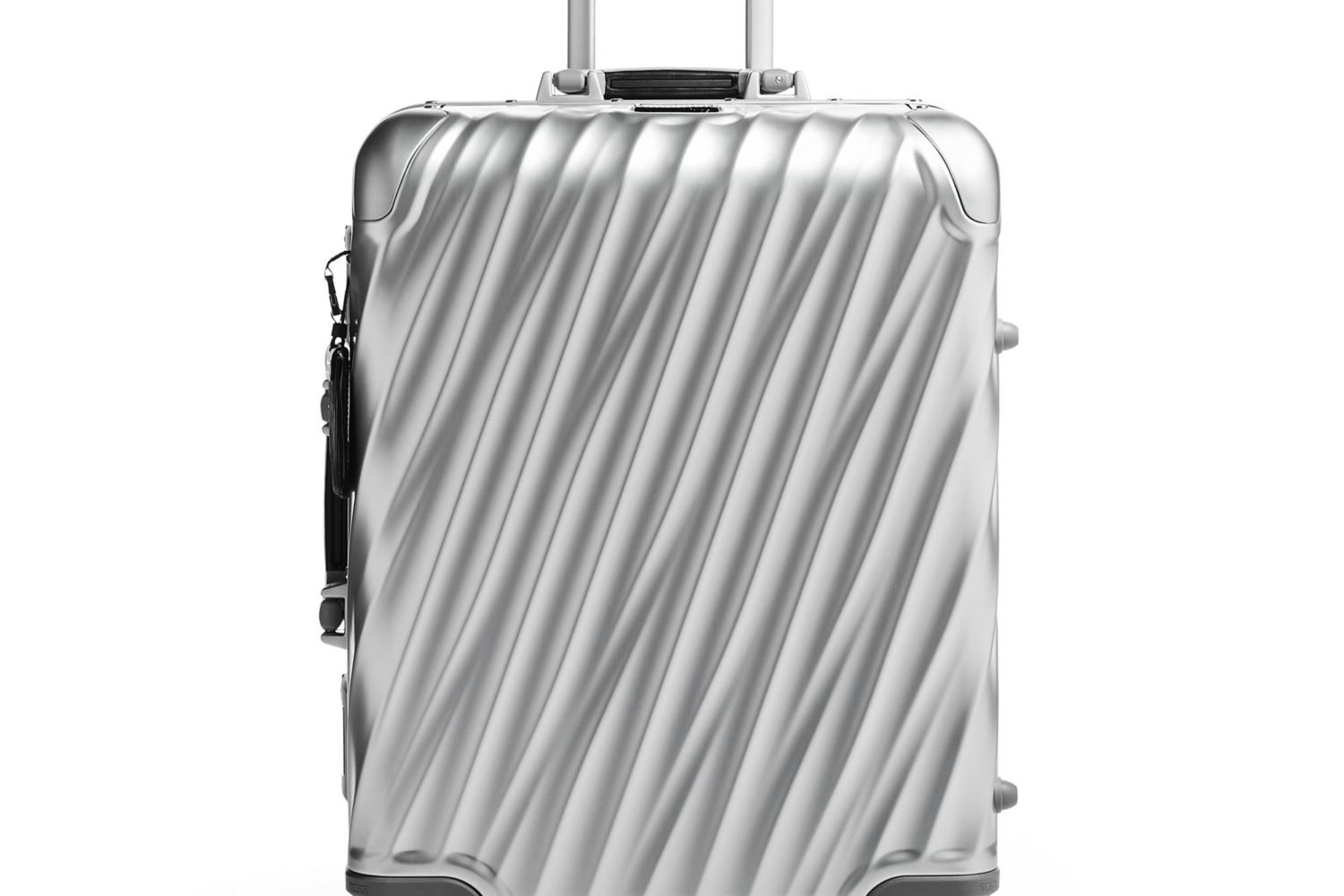Related >> What's Your Stress Score? | What Stress Does to Your Body
Washington is a stressed-out city. We worry about money, jobs, family. We’re spending more time on BlackBerrys and less time sleeping. Area drivers spend 62 hours—about 2½ days—stuck in traffic each year, and our 33-minute average commute is one of the country’s longest.
Those who have little control over their schedules and who perform mostly repetitive tasks report the highest stress levels. That means an assistant may be more stressed than the boss. People who exercise, have close friends, and pray suffer less stress than those who don’t.
We talked to 23 Washingtonians—from a Buddhist leader to a police sniper to a stay-at-home mom—to find out what stresses them out and how they deal with it. We found a Pilates-loving CEO and a broadcast journalist who swears by meditation. And we asked all of them to take our quiz so we could see how their stress scores compared. While everybody’s coping strategy is different, one thing is clear: We all need to learn how to relax.

Norah O'Donnell, MSNBC chief Washington correspondent and the author—with her husband, chef Geoff Tracy—of the baby-food cookbook Baby Love
Stress score: 15
My stress: In the news business, every day is different, so it requires infinite adaptability and flexibility. That’s difficult when you’re the mother of three-year-old twins and a two-year-old.
How I cope: The way I’m able to balance it all is my support team—my husband, my nanny, my au pair, my parents, Geoff’s parents. At work I have a producer who’s assigned to me. I’m able to manage by delegating and learning to trust people.
Seven weeks after I had my third child, Riley, I came back from maternity leave for the Democratic convention because I didn’t want to miss it. It was gut-wrenching to think, “Is it wrong of me to leave my seven-week-old at home so I can go to work?” But I flew off to Denver and I took my breast pump with me and pumped between shows. The NBC page who was assigned to me at the convention turns to me in one of the final days and says, “Is there anything else you need, Norah?” And I said, “Yes, I need you to figure out how to ship my breast milk home.” I will rely on anybody for anything.
I have a real issue with the phrase “balance work and family.” It leaves women feeling guilty. It suggests that there are scales of justice where it’s even—work gets this much, family gets this much, and it’s equal. The truth is you will spend less time with your children than you do at work. And that hurts me when I say it, but it’s true. In my case, it’s 10 to 12 hours a day working and maybe an hour a day with my children.
When I’m stressed, I think about a moment when we were on vacation. We were with some friends and we anchored the boat, jumped into the ocean, and swam to a beach. I lay on the hot sand and thought, “Capture and remember this moment; think about it when you get really stressed out.”

Topper Shutt, chief meteorologist at Channel 9
Stress score: 12
My stress: There are a zillion microclimates in our area. We cover places that average 20 inches of snow a year and others that average just two. The big storms, like last winter’s blizzards, are pretty easy to predict. But the biggest stress for me is the smaller storms that just narrowly miss us. Sometimes you can’t tell until late in the game whether they’re going to bring big snows or big busts. We have to choose our words very, very carefully. People hear “snow” and they stop listening. Snow is a powerful four-letter word.
How I cope: I play golf when I can. And I like to do things around the house like yard work, painting, or carpentry. It’s my time alone.
Mike Darner, legislative director for Congressman John Conyers of Michigan
Stress score: 21
My stress: I am not a high-stress person, but I become very type-A when I get to work. I have a to-do list that’s obscenely long—something like 20 pages at 12.5-point font. You add to it all the time and hope you’ll get to tick things off.
I get a lot of headaches, and I feel exhausted at the end of the day, which means it’s hard to be sociable or to exercise. I’d love to be able to leave work in time for happy hour with friends. It never happens.
How I cope: A lot of my friends work on the Hill, so talking through stress —whether it’s office- or policy-related —helps. I go for a walk every day after lunch. That’s good quiet time to think about what you have to do for the rest of the day. It helps me get some clarity.
Rudolph Gardener, Metrobus driver living in Bowie
Stress score: 10
My stress: You come to work in a defensive mode, expecting the worst. You’re dealing with pedestrians, vehicles, passengers, weather, traffic.
One of the biggest problems is pedestrians. They don’t follow rules. They’ll walk in the street between crosswalks. They’ll walk in front of your bus. They’re out in dark clothes in the street.
How I cope: When I’m stuck in traffic, I tell myself, “It is what it is and you can’t change it—go ahead and relax.” You have to talk yourself out of rushing. Most accidents are because someone was rushing.
There are times when someone on the bus wants to bring some stress on, and you just have to be quiet and ignore it. It’ll go away. Most of my passengers know what kind of person I am. I want them to feel like they’re getting the service they’ve paid for.
Army Colonel Aaron Geduldig, division chief of the Joint Logistics Operations Center at the Defense Logistics Agency
Stress score: 14
My stress: I oversee about 50 people. We do a lot of contingency operations. The most recent one was after the earthquake in Haiti. We set up 24/7 ops here. We were gathering information to figure out what people needed—shelter, food, water, fuel. I would have my regular workday and then stay here for another six to eight hours to cover the night shift. I was getting four to six hours of sleep.
How I cope: I drink a lot of coffee. Because I’m type-A, I think the caffeine actually settles me down. At least that’s what the folks working for me think. They’ll say, “Sir, have you had your coffee yet?”
Being in combat is a life-changing event. No matter what happens to you downrange, you come back changed. For me, it’s been easy to put other stressors in perspective. When I get stressed, I tell myself, “What we’re doing now is important, but no one’s getting killed.”
There was a point in Iraq when I lost my first solider. All eyes are on you, trying to figure out how you’re going to react. You realize that the last thing these people need is to see me lose it. Right now they need someone calm, cool, and collected.
It helps later to talk to people you trust. It’s something that’s always with you; you have to learn to deal with the disappointment and pain that’s associated with it.
Bill Marriott, chairman and CEO of Marriott International
Stress score: 8
My stress: My biggest source of stress is this: Do we have the right kind of relationships with our stakeholders—the associates who work here, the customers, the owners of our hotels, and our shareholders? When we have problems with the stakeholders, that causes me a lot of stress.
How I cope: I spend my life delegating. I try to do as little as possible myself and get everybody else to do the work. It’s a big company, and there’s a lot to do. I have a lot of follow-ups and conversations and meetings, so I’m as informed as I can be. But you have to delegate.
I like to read action books. I think I’ve read all of James Patterson’s books.I use the treadmill five nights a week and do Pilates twice a week. And in the 56 years I’ve been married, I’ve always tried to be home for dinner at 6:30. It’s been years since I missed that time.
Katharine Weymouth, publisher of the Washington Post
Stress score: 16
My stress: I’m a single mom. I have kids, a job, three dogs. I have extremely high energy. Some of my friends might say I never sit down, but that’s just my personality.
How I cope: You just learn to multitask. I have a BlackBerry, an iPhone, an iPad, and a Kindle.
When I have to give a speech and I’m nervous, I do yoga breathing. Just a couple of deep breaths—and nobody can see you’re doing it—but it slows your heart rate down.
When I can’t sleep, I try to think of a letter of the alphabet and then think of five last names of famous people that start with that letter. It’s usually boring enough that I go to sleep.

Robert Wiedmaier, chef and owner of five restaurants in DC, Bethesda, and Alexandria
Stress score: 10
My stress: Every day as a chef, you feel like you’re running a Broadway show. You try to blow everybody away with a great dining experience, but you’re only as good as your last dish. When a bad review comes out, I don’t sleep. Everyone who works for me doesn’t want to see me. It’s like your heart is ripped out.
How I cope: When I just had Marcel’s, I could run the show. Then I opened Brasserie Beck, then Brabo and the Tasting Room and Mussel Bar. You learn that you can’t be two places at once. You have to surround yourself with the best people and be willing to let go of some control.
I like to fish, hunt, and ride my motorcycle—basically, anything that requires so much focus that you can’t think about anything else besides what you’re doing.
I do push-ups and sit-ups every morning, one for every year of my life—I’m 50. I’ve put myself on a diet, and so far I’ve lost 42 pounds. I feel like a new person.
Hanan Scrapper, director of Artemis House, a domestic-violence shelter in Fairfax County
Stress score: 10
My stress: This is a 34-bed facility, which isn’t very big for all of Fairfax County. We don’t have enough space for everybody. Sometimes I feel like I run out of options. I’m thinking, “Have we called this place? Have we called that place?”
How I cope: I tell myself to count my blessings and be grateful that I have a place to put my head at night and feel safe. I cry with clients sometimes. I don’t want to be desensitized.
I listen to music, and right now I’m reading The Girl With the Dragon Tattoo. It takes me away from what I do and makes me have this whole different life. I also watch stupid TV shows like The Real Housewives of D.C. and Jersey Shore.
Graham Gano, kicker for the Redskins
Stress score: 4
My stress: You could go out, miss a field goal, and if you are not mentally strong, then you are going to be messed up the whole game. But I don’t really get nervous; I’m totally relaxed out there.
How I cope: When I was in college, I worked with Trevor Moawad of the IMG Academies in Bradenton, Florida. He is a mental coach, and he works with the Florida State University football team. He trains you to be confident, to know you are good enough to do it. Confidence is the big thing.
Before the game, I will take myself through some mental preparations on the field, visualizing myself kicking the ball. And it’s not just right before I go on the field; when I am at home, I am thinking about what I have to do, too.
Candy Crowley, CNN chief political correspondent and anchor of State of the Union
Stress score: 16
My stress: Journalists are stress junkies. We are deadline people. I secretly love when we change things at the last minute and start all over again.
Flexibility is a must. It’s a wonder I have any friends left. You make plans and you can’t keep them. I feel like the most unreliable person in the world sometimes.
How I cope: I used to be able to feel stress in my body, but two things have helped: meditation and exercise. I tend not to get sick much anymore, and I rarely get headaches. One of the great things about meditation is that it helps you order your thoughts. It makes me more alert, less tired, a better thinker. I think of it as my self-preservation time.
I largely don’t read what people write about me or listen to what they say about me. It gets in my head. A friend once told me, “You already know who you are. This is written for people who don’t.
Robert Barnett, partner at the law firm Williams & Connolly and literary agent to Barack Obama, Sarah Palin, Bill and Hillary Clinton, and other prominent figures
Stress Score: 7
My stress: I don’t have all that much stress. I’ve come to an age and seniority where if something causes stress, I can generally find a way to get rid of it.
How I cope: I deal with stress in three ways. First, my treadmill—half hour to an hour every day. I’ve been doing it for years, and when I started, it was immediately a great benefit. Second, sleep. I love sleep. I’m a practitioner of sleep. I majored in sleep in law school. On weekends, I sometimes sleep until noon. Third, my grandson, Theodore “Teddy” Braver Penn. There is nothing that makes life happier, puts life more in perspective, and provides fun more than that little boy.
Steve Wunder, architect with RTKL Associates and religious leader for the 8,000 Buddhist practitioners in the Mid-Atlantic Soka Gakkai International-USA association
Stress score: 9
My stress: I’m an architect for a big international firm. I design hospitals and research facilities. I spend three to four nights a week with members of Soka Gakkai. And my father is struggling with cancer. I grind my teeth on occasion and have trouble falling asleep.
How I cope: Chanting is my remedy for everything. To sit and chant for 15 minutes can really cut through feeling overwhelmed, and it allows me to think clearly. There’s a mantra we use: Nam-myoho-renge-kyo. It signifies the fundamental life force in the universe.

Sister Clare Hunter, member of the Franciscan Sisters of the Eucharist at St. Philip the Apostle Catholic Church in Falls Church
Stress score: 12
My stress: I’m the director of the Respect Life Office. My main responsibility is making sure that schools, parishes, and those within the Diocese of Arlington have an adequate understanding of the Church’s teachings on life issues. I do a lot of talks. There’s stress in knowing that I might be speaking on a sensitive subject. It’s one thing to talk about my vocation, but to talk about abortion and know that someone in the room probably had one can be difficult.
How I cope: I pray to the Holy Spirit to give me wisdom and courage. Prayer is the ability to put your worries into God’s control. In my most stressful moments, I pull out my rosary and say a prayer. Touching it is a reminder of God being with me.
I joined the order in 1993, when I was 21. I felt a pretty intense awareness of God asking me to do this. The more I thought about it, the more I felt this sense of “That’s what I’m supposed to do.” When I was with the sisters, I felt more myself and more alive.
We play Scrabble or cards together. Mealtimes are when we unload from the day or talk about something going on in the world. Those times are very uplifting.
J. Warren Gorrell Jr., partner and co-CEO of Hogan Lovells (called Hogan & Hartson until its recent merger with the firm Lovells)
Stress score: 10
My stress: There is a lot of stress that goes with my job, particularly following the merger. Everyone is looking to see how you do. You feel a little more . . . maybe not stress, but pressure.
How I cope: I exercise religiously. I wake up every day at 5:30, come down to the gym, work out for an hour and a half, grab breakfast, and then I’m on my way. It clears your head and gets you ready to go. When I go home, I’m treated as a regular guy, not a CEO. Having a family that understands the pressure that you deal with and is flexible is incredibly important.
Alana Beard, guard/forward, Washington Mystics
Stress score: 4
My stress: Before my ankle injury, I put an extreme amount of pressure on myself to succeed. I would sometimes find myself mentally depleted before the game even started. It was a hard life to live.
How I cope: I got injured in April. It forced me to realize that basketball is only a small dot in my life. The doctor walked in the room and said, “This is a potentially career-ending injury.” And the first thing I thought about was how much I have ignored my faith. I had put basketball before God and my faith and my family without even realizing it.
The book that helped me reconnect with my Christian faith was The Purpose Driven Life by Rick Warren. A friend came up to me after one game that I wasn’t playing in and told me, “You look so relaxed, so relieved, so refreshed.” I knew then that I was taking the right steps in my life.
Kimberly Wilson, founder and creative director of Tranquil Space yoga studio in DC and Arlington
Stress score: 11
My stress: I have two yoga studios and a clothing line, I founded a nonprofit, and I’m in graduate school for social work. I also have a part-time internship. I work about 70 hours a week. I have five Twitter feeds, one for each of my businesses and a personal one. All the businesses have their own Facebook pages and YouTube channels. And just last week I recorded the 200th episode of my podcast.
How I cope: It’s figuring out where you can insert these little doses of self-care and balance, which to me come through exercise, massage, baths, matinees, and bookstore browsing. That’s how I balance what for some other people might be stressful.
There’s this great book that I just read called 168 Hours: You Have More Time Than You Think by Laura Vanderkam. We have 168 hours every week. If you work 50 hours a week and you sleep 9 hours a night, you still have 55 hours left per week. So it’s recognizing where that time is going. It’s all about scheduling in these things that are good for you.
Matt Zaborsky, unemployed for nine months; recently found a job with Maryland’s Property Tax Appeals Board
Stress score: 17
My stress: I was a mortgage broker for about five years until the housing meltdown. I decided to close my business on December 31, 2009. I’m 57, and I felt like I would be an attractive job candidate. Over nine months, I put out well over 50 résumés. I got five calls for interviews.
You feel like you’re a worthless old dinosaur. They’ll say you don’t have the right background or you’re not qualified or you’re not the right fit. Those are all just code words for “We don’t want to pay you this much. We’ll find someone younger.”
At the beginning, I was spending six to eight hours a day looking for work; when I got really frustrated, it was maybe two or three. Eventually 5 pm rolls around and you say, “I guess it’s time for a beer.”
How I coped: Sometimes I would literally have to walk away from my house or computer. My dog, Blanche, was a big help with that because I would take her for a walk. It was important to do something to alter my environment.
I also found it helpful just to do something—go to a networking event, take a class. I took a career seminar at the Jewish Council for the Aging in Rockville. It helped me feel productive. Plus, being with other people going through similar situations was comforting.

Sara Bauleke, owner of Bella Notte, a wedding-planning business in Arlington
Stress score: 14
My stress: Weddings are so once-in-a-lifetime. It’s this huge family affair, and there’s a lot of pressure on brides. Sometimes you feel like you’re a family therapist.
How I cope: When you’re starting out, you say yes to everything. One year, I did 24 weddings. I’ve since learned that I can do between 12 and 14 a year without feeling overwhelmed.
I take Sunday and Monday off. I close the office and don’t answer my business phone or check my e-mail. I don’t even turn on the computer because it’s too tempting to click into e-mail. I set boundaries ahead of time with clients, so they know if they call or e-mail me on a weekend, I won’t get back to them until Tuesday.
Bruce Boudreau, coach of the Washington Capitals
Stress score: 17
My stress: My job is about winning. And I’ve got to make a lot of decisions in the course of the day, so you second-guess yourself sometimes. I think about my job 24 hours a day. But I wouldn’t rather be doing anything else.
How I cope: This is what I’ve been doing for 35 years, and pressure is just part of it. When you give a shit about everything that happens, you want to be in control and make sure the right stuff is going on. So you go over it and over it and over it. If that’s stress—well then, so be it.
Ernie Jarvis, managing director of CB Richard Ellis’s DC office
Stress score: 16
My stress: The last three years have been tumultuous in the commercial real-estate business. It feels like the market is getting better, but we’re not out of the woods. You’re always nervous because of the prospects of a double-dip recession.
How I cope: Nearly every weekend, I’m in Annapolis on the Chesapeake Bay. I’ve got a boat, a 35-foot Falcon. It’s about an 85-mile-an-hour boat on the water, which is like driving 160 miles an hour in a car. There’s no room for error. You are absolutely focused on the next wave in front of you.
I have two boys, eight and ten years old. At the end of the day for three seconds when they run over and jump on Daddy, whatever stress I have immediately subsides. You live for that moment. That’s what drives my life. It’s only for three seconds, but it is awe-inspiring.
Wendell Cunningham, sniper for DC Metropolitan Police Department
Stress score: 10
My stress: When that pager goes off, my adrenaline goes up real quick. When I get to the scene and find out it’s a hostage situation, it’s going to be high stress until we get that person out.
The adrenaline makes me think of alternatives to using deadly force. I think, “What else could we try to defuse the situation?” My guys are on the same page.
I’ve been involved in situations where I’ve had to discharge my weapon. About 10 or 15 years ago, this guy kidnapped two kids because his girlfriend broke up with him. He barricaded himself with the two kids in an attic. He dumped gasoline on them and threatened to kill them. All of a sudden, we saw a large ball of fire. He’d lit the place on fire. The boy broke loose and we grabbed him, and then the girl tried to break loose, but I saw him reach down with a match to set her on fire. I discharged my weapon, striking him.
The first thing that comes to your mind is, “Did I have to shoot? Could I have done something different?” But I did what I had to do.
How I cope: I run a lot and like to lift weights. I’ve competed in the World Police & Fire Games for 12 years.
My wife asks me how my day was, but I usually don’t want to talk about it. If something really good happened, fine, but I’m not going to tell you we had a suspect who poured gasoline on his kids and lit the place on fire. So when she asks, I say, “Can we talk about something different?”
Monica Sakala, Silver Spring stay-at-home mom with two daughters, ages two and five
Stress score: 13
My stress: When I worked, there was a level of consistency: You knew how many meetings you were going to have, how long your day was going to be, what deadlines were coming up. What causes stress in my day now is the unexpected—things like lice infestation, stomach viruses, fighting between siblings, battles to put on coats, abrupt hatred of all pajamas in the house.
On rough days, I remind myself that it is a privilege to be at home with my children. That can get away from you when you’re with them every day.
How I cope: Carving out enough time for myself is difficult. To make sure I get it in, five days a week I get up at 6 to run. That time is the only guarantee I’ve got.
For the last few years, I’ve kept a blog (wiredmomma.com). Sometimes I’ll complain or vent, and it’s reassuring when people leave comments that they feel the same way. And sometimes I’ll write something funny—that’s cathartic, too.
All photographs by Chris Leaman.
This article first appeared in the December 2010 issue of The Washingtonian.



![Luke 008[2]-1 - Washingtonian](https://www.washingtonian.com/wp-content/uploads/2017/10/Luke-0082-1-e1509126354184.jpg)

















